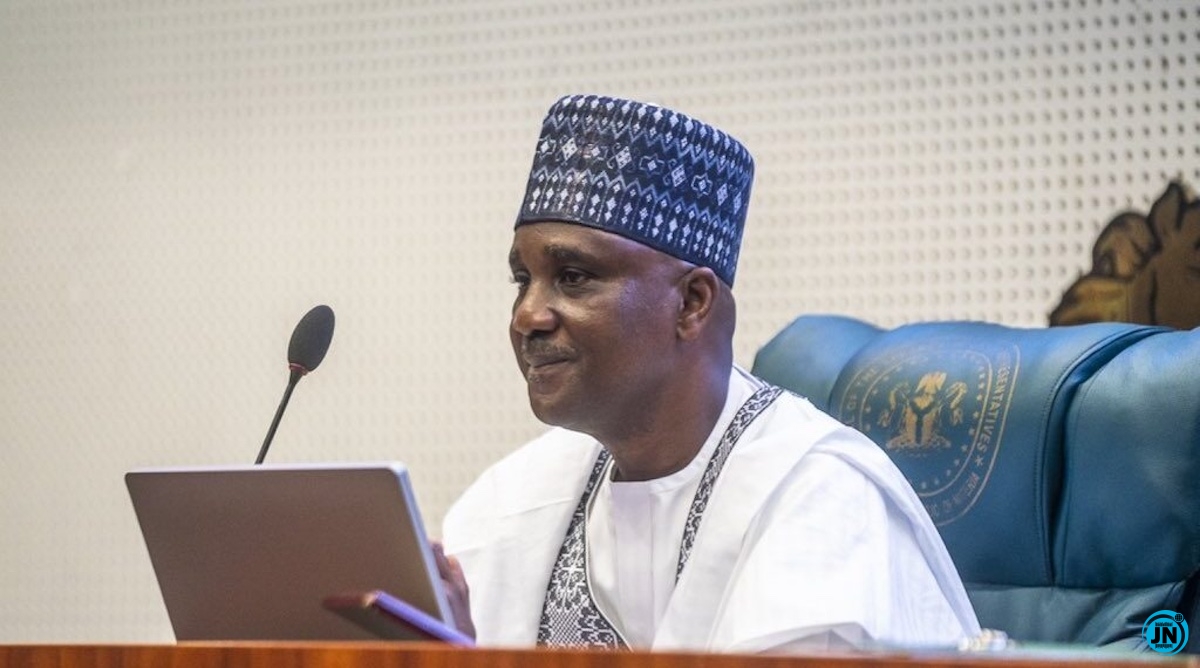
The Speaker of the House of Representatives, Abbas Tajudeen, has expressed deep worry over Nigeria’s rising debt crisis, warning that the nation’s debt profile has crossed legal limits and is fast endangering the country’s fiscal health and future stability.
Speaking on Monday during the 11th Annual Conference and General Assembly of the West Africa Association of Public Accounts Committees (WAAPAC) in Abuja, Abbas disclosed that Nigeria’s total public debt has now climbed to ₦149.39 trillion (about US$97 billion) as of the first quarter of 2025. This marks a huge increase compared to ₦121.7 trillion recorded in the same period of the previous year, showing how quickly the burden is spiraling out of control.
According to the Speaker, the most troubling part of the situation is that Nigeria’s debt-to-GDP ratio has now hit 52 percent, far above the 40 percent statutory ceiling prescribed by Nigerian law. He said the breach poses a serious strain on the nation’s fiscal stability and should serve as a wake-up call for urgent reforms.
“As at the first quarter of 2025, Nigeria’s total public debt stood at ₦149.39 trillion, which is about US$97 billion. This represents a sharp rise from ₦121.7 trillion the previous year. What is even more disturbing is the debt-to-GDP ratio, which has now climbed to about 52 percent—clearly breaching the 40 percent legal ceiling. This shows the scale of the challenge before us,” Abbas stated.
He lamented that reckless borrowing, without a clear framework of accountability, risks plunging Nigeria into the same trap that has left many African countries spending more on debt servicing than on healthcare, education, and other essential services. He cautioned that Nigeria must not allow itself to fall deeper into such a cycle.
To tackle the growing fiscal risks, Abbas unveiled the plan to set up a West African Parliamentary Debt Oversight Framework under WAAPAC. The framework, according to him, will harmonise debt reporting standards across the region, establish stronger transparency benchmarks, and empower parliaments with the tools and data needed to properly scrutinise borrowing requests from the executive arm of government.
In addition, he revealed that there are plans to initiate a regional capacity-building programme that will strengthen debt sustainability analysis and improve fiscal risk assessments among lawmakers and financial oversight institutions. This, he said, will ensure that borrowing is not just monitored but also properly aligned with economic growth strategies.
Abbas stressed that loans should only be channelled into infrastructure, health, education, and industries that can stimulate economic growth, create jobs, and reduce poverty. He condemned the idea of reckless borrowing driven by political motives, corruption, or consumption-based spending, calling it “dangerous and unacceptable.”
Reaffirming the 10th House’s commitment to transparency and accountability, Abbas said that the legislature’s Open Parliament policy would guarantee that all major borrowing proposals undergo public scrutiny before approval. He added that simplified debt reports will also be made available to citizens to keep the public properly informed and involved in national financial discussions.
His remarks come at a time when Nigeria’s debt situation has triggered growing criticism from stakeholders, economists, and civil society groups who fear that the country may be heading toward a debt trap if urgent corrective measures are not taken. Abbas’s call, therefore, adds to the increasing demand for fiscal discipline and responsible management of the nation’s finances.